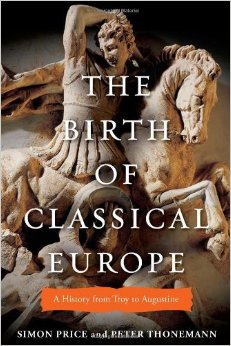|
This points to a civilizational catastrophe for early Western Civilization, the scale of which is enormous, of “Old Testament” proportions (and it is contemporaneous with Old Testament times).
Let me try to present the data in a simpler way:
Number of Inhabited Places in Mainland Greece
(Mid-1200s BC=100 [arbitrary; for easy comparison])
1200 BC: 100
1100 BC: 33
1000 BC: 10
900 BC : 20
700 BC : 40.
During the long decline, the remaining settlements were smaller-scale, so we have to magnify the drop even more in real terms. If the settlements were half as dense at the 1000 BC nadir as before the long decline began, that implies a 95% population drop from 1200 BC to 1000 BC in mainland Greece, a cradle of Western Civilization. Other cultures in the region fared similarly. Political, economic, and cultural collapse. The authors say that literacy came grinding to a halt in these centuries; writing was all but lost; we find no monuments at all from these centuries.
There are always people around warning about impending collapse but few are ever listened to and even fewer are ever right. One such man I know of today who has a substantial following is John Michael Greer. He is one of the most prominent Peak Oil theorists. He writes something called the Archdruid Report. I have read some of his writings. He writes well but I don’t know what to think of his grand thesis, that industrial civilization is slowly coming to an end, with perhaps a population fall-off similar to the one described above in ancient Greece coming to us in this century. This is too radical an idea to easily believe. (I am likewise sure that the same was said by Greek intellectuals in the late Bronze Age, in the 1200s BC, when someone tried to point to signs of coming decline, whatever those may have been.)
The amazing thing is that nobody knows why things fell apart so dramatically starting around 1200 BC. The authors reject an old theory that it was caused by pressure from seaborne raiders. They say that while raiding did increase at this time, it was the effect, not the cause, of the civilizational decline. They start talking about internal social and political problems within the states affected, and soon their explanation bogs down in the muck and leaves the reader unsatisfied. They don’t offer any kind of firm explanation for the “collapse”. It remains a mystery.
“The worst disaster in ancient history”
— Historian Robert Drews on the Mediterranean world decline beginning ca. 1200 BC

